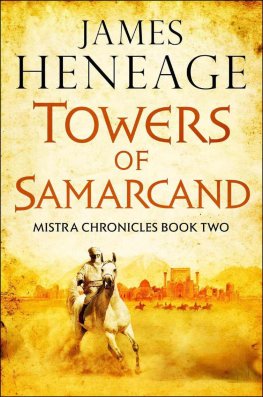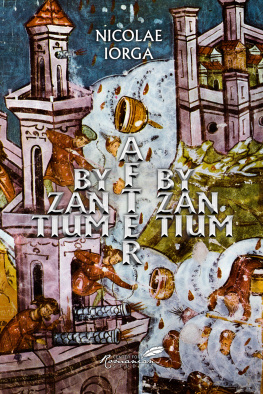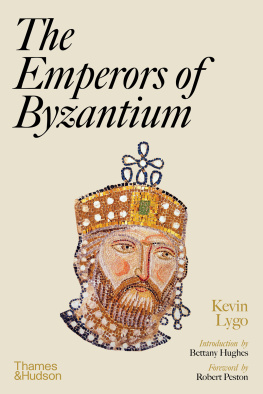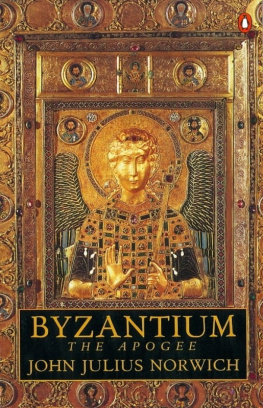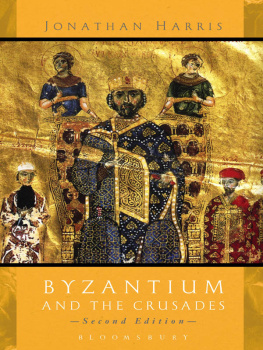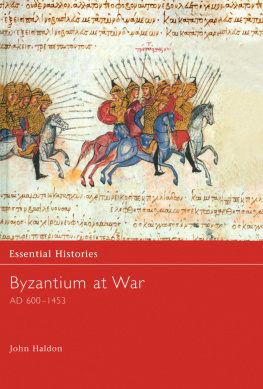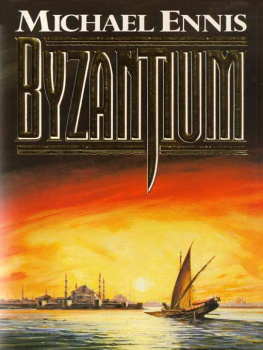James Heneage - The Walls of Byzantium
Here you can read online James Heneage - The Walls of Byzantium full text of the book (entire story) in english for free. Download pdf and epub, get meaning, cover and reviews about this ebook. genre: Adventure. Description of the work, (preface) as well as reviews are available. Best literature library LitArk.com created for fans of good reading and offers a wide selection of genres:
Romance novel
Science fiction
Adventure
Detective
Science
History
Home and family
Prose
Art
Politics
Computer
Non-fiction
Religion
Business
Children
Humor
Choose a favorite category and find really read worthwhile books. Enjoy immersion in the world of imagination, feel the emotions of the characters or learn something new for yourself, make an fascinating discovery.

- Book:The Walls of Byzantium
- Author:
- Genre:
- Rating:3 / 5
- Favourites:Add to favourites
- Your mark:
- 60
- 1
- 2
- 3
- 4
- 5
The Walls of Byzantium: summary, description and annotation
We offer to read an annotation, description, summary or preface (depends on what the author of the book "The Walls of Byzantium" wrote himself). If you haven't found the necessary information about the book — write in the comments, we will try to find it.
The Walls of Byzantium — read online for free the complete book (whole text) full work
Below is the text of the book, divided by pages. System saving the place of the last page read, allows you to conveniently read the book "The Walls of Byzantium" online for free, without having to search again every time where you left off. Put a bookmark, and you can go to the page where you finished reading at any time.
Font size:
Interval:
Bookmark:
James Heneage
The Walls of Byzantium
PROLOGUE
CONSTANTINOPLE, 12 APRIL 1204
At first he didnt hear them.
Alexios V, Emperor of Byzantium, heard only hoofbeats from his balcony overlooking the Hippodrome. The ghosts of charioteers past.
The cough came again and the Emperor turned.
Standing between the pillars were four men of his Varangian Guard. All were over six feet tall and had fair hair that fell in plaits either side of faces cracked with fatigue. They carried axes and their armour was spattered with blood.
The Varangopouli. Thank God for the Varangopouli. Give me an army such as these.
Where are the Franks? he asked.
A Varangian stepped forward. His voice was hollow with exhaustion. Within the city, Majesty. They managed to enter through one of the sea gates. They got behind us.
There was a pause. Metal scraped on metal as one of them shifted pressure from a wound.
The Guard stood firm, lord.
The moon emerged from behind a cloud and its light fell upon eyes that hadnt closed in days. Alexios had known the commander of his guard for thirty years. He put his hand on his shoulder.
I dont doubt it, Siward. When has it not?
A womans scream came from below, then the crash of a falling building. The Emperor looked down.
A hundred and forty years, Siward. You, your father, his father all those years. He looked up and smiled. Now your Emperor needs one more service.
Alexios stepped forward and looked at each man in turn. Follow me, he said.
The five mens footsteps echoed through the corridors of the empty palace until they arrived at a courtyard silhouetted by flame. They walked across it to a small door. The Emperor pushed it open and led them down a steep flight of steps, worn with age.
At the bottom, Siward took a torch from its sconce and lit their way across a hall to a door in the far wall. The Emperor reached up to the heavy lintel and moved a stone engraved with a double-headed eagle.
Slowly, slowly, the door creaked open and they entered a large, circular room fetid with dust. Lifting the torch, Siward looked around him and saw dismembered heads stare out from the shadows. Constantine, Gratian, Justinian and Basil the Bulgar-slayer. Eight centuries of emperors looked out from their plinths with disdain.
In the centre of the room was a plain altar.
The Emperor turned. Move the altar. Theres a passage beneath.
In a square next to the great church of Hagia Sophia in Constantinople stood the much smaller church of St Olaf, the church of the Varangopouli. Beside it was a narrow street that led to the Harbour of Hormisdas.
The Franks had yet to reach this part of the city, but they were near. Sounds of fighting were coming from the direction of the Iron Gate, where theyd made a second breach in the walls.
The church door opened and, one by one, the Varangians stepped into the street, silently fanning out to form a wall of shields. Then a single casket appeared, supported on poles carried by four palace servants.
Siward brushed the dust from his cloak and raked the street with his axe-head. He looked behind. The casket had reached a small square and its carriers were hurrying towards a sea gate that opened on to the harbour jetty beyond.
But someone was there before them.
A merchant and his wife were on their knees, pleading with the soldiers guarding the gate to let them through. The woman held part of her dress to her mouth against smoke that billowed from a street behind.
Siward backed towards them, then stopped to listen. There were men on the other side of the smoke.
Saint Denis et Montjoie!
A score of wraiths rose up, monstrous, metal figures emerging beneath a banner of lilies. They held shields and maces and fierce animals reared high on their helmets. The four Varangians were outnumbered five to one but there were no better soldiers in the world. Their axes swung and sliced their way through the finest Milanese armour and the Franks fell at their feet, their skulls crushed and their limbs pumping blood on to the stone. And as they fought, the men backed inch by inch towards the open gate. The casket was through but they were running out of time.
The merchant and his wife were pressed against the wall between the Varangians and the gate, transfixed by the slaughter.
Get away! yelled Siward.
The woman fell to her knees, clutching his leg in her terror. Siward glanced down at her.
I cannot save her but I can save the casket.
He reached down and hauled the woman to her feet. She was pretty enough. He flung her towards the French. She fell at their feet, her dress rucked up to reveal a thigh. It was enough. One of the Franks leant down and tore open her bodice. Wrenching open his visor, he fell on her as his companions roared.
Now! yelled Siward, and the four Varangians turned and ran through the gate, barring it behind them.
On the jetty, the boat was ready to sail. It was a squat, round-bottomed merchant vessel that flew the flag of Venice. Siward looked up.
Will it fool them?
The casket was on board and the sailors stood ready to cast off. The Varangians boarded and the ship was pushed out into the Propontis, the wind snapping its sails taut as they were hauled up the mast. Gathering speed, they passed platforms with giant engines of war manned by half-naked men who cheered as their fireballs exploded against the city walls. Siward saw another part of the sea wall slide into the sea.
It wont be long now.
He looked out to sea. His ancestors had sailed this way in their longboats from an island far to the west, an island shrouded in mist called England. They had passed the deep ruins of Troy and into the Sea of Marmara to arrive at the fabled city of Miklagard as the dawn had ignited the gold of its palaces and churches. They had sailed to escape the Normans who had killed their king, put an arrow through his eye. They had come to seek service with an emperor who needed men of courage and skill to fight his own Normans. They had come with hatred in their hearts and they had become the first English Varangians.
Now they were sailing away. Siward looked down at his sword, at the dragons head that was its pommel. It was all he was taking with him.
Except the casket.
A sudden gust billowed the sails and the ship lurched forward. Then it was through the blockade and heading for the open sea. He hauled himself to his feet and called out to the captain: You know your course?
The man shook his head. South only, he shouted. They said youd tell me where.
Siward took one last look at the city. It could have been the salt spray or tears that clouded his eyes. Then he turned his head to the south.
Mistra, he said. We sail to Mistra.
PART ONE
CHAPTER ONE
THE CITY OF MONEMVASIA, SPRING 1392
For birds migrating south that day, the journey down the coastline to Cape Maleas offered a view unchanged since their species began.
On one side, the deep, deep blue of the Mirtoon Sea spread its unabbreviated calm out to the horizon. On the other, the Despotate of Mistra offered mile after mile of rugged hinterland, wild with forest and mountain.
Until Monemvasia.
There, the Greek Peloponnese extended a crooked finger into the sea and on its knuckle perched a city where twenty thousand souls bustled within walls that seemed to grow out of the rocks beneath them.
Scattered across the sea were the white sails of merchantmen waiting in the roads to enter the citys port to the north and, closer in, closer to the rocks on which the city stood, were the figures of four boys lying on their backs in the water.
One of these was Luke Magoris. He was looking up at the walls of Monemvasia and thinking.
Font size:
Interval:
Bookmark:
Similar books «The Walls of Byzantium»
Look at similar books to The Walls of Byzantium. We have selected literature similar in name and meaning in the hope of providing readers with more options to find new, interesting, not yet read works.
Discussion, reviews of the book The Walls of Byzantium and just readers' own opinions. Leave your comments, write what you think about the work, its meaning or the main characters. Specify what exactly you liked and what you didn't like, and why you think so.

